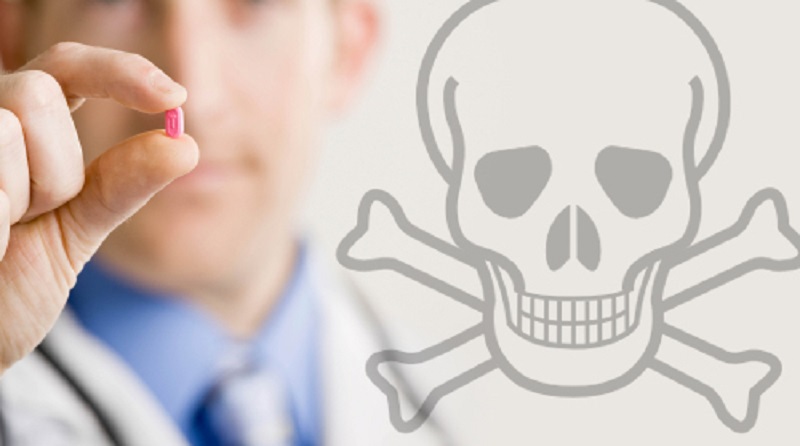Once the culture of death sinks its venomous teeth into a society, corruption follows upon corruption.
The medical sector is among the first to corrode. Witness the Dutch Medical Association (KNMG) that now advises its members to help “anyone” commit suicide by self-starvation.
From, “Caring for People Who Choose Not to Eat or Drink so as to Hasten the End of Life” (my emphasis):
Consciously choosing not to eat and drink to hasten the end of life is a choice each and everyone can and may make for themselves. This decision does not require the individual to consult with a physician, a nurse, carer or any other party. The choice to hasten the end of the life is a drastic choice for both patients and those close to them. It is a choice between a life deemed unacceptable by the patient or the patient’s own choice to die.
There was a time when doctors were expected to prevent suicide. Now, they either have to do the deed themselves or apply medical means to make it easier to become dead.
A desire for suicide by starvation transforms the suicidal person into a “patient,” requiring a doctor to help:
On the one hand, this guide relates to people who are not suffering from an illness and, on the other hand, to patients whose condition is deemed to be an illness or a combination of illnesses and complaints by a physician. In the latter case a medical basis exists (KNMG 2011).
Click here to sign up for pro-life news alerts from LifeNews.com
People who are not ill, but who consult a physician, nurse or carer at any time concerning their intention to consciously choose not to eat and drink so as to hasten the end of their lives, become a ‘patient’ in the context of the physician-patient relationship…
The KNMG says that doctors must help people with that process:
The care provider’s actions are directed towards adequately and proportionately relieving the patient’s suffering. The care provider provides the patient information, prepares the patient for the process and guides him through it.
The care provider explores the patient’s request for assistance and informs the patient as thoroughly and objectively as possible about the expected course, and the advantages and disadvantages.
So, if someone decides for any reason, the doctor must make the self-killing easier to accomplish.
But, not to worry, it isn’t really suicide!
The committee wishes to underline, however, that consciously choosing not to eat and drink and suicide cannot be deemed equivalent because there may be relevant differences between the two. Suicide is associated with an active, violent, lonely and often impulsive act.
Gobbledygook. So, if the person shoots himself in the head, it’s suicide. If they starve to death with the help of a doctor it is not suicide.
The KNMG engages in blatant age discrimination:
This guide emphatically advises patients under 60 years of age who are not suffering from a life-threatening illness against choosing not to eat and drink to hasten the end of life.
Older patients need not be advised against consciously choosing not to eat and drink, even if they are not suffering from a life-threatening illness or are still in a good state of health.
It doesn’t say, however, that if the younger person decides to self-starve that the doctor should not assist. They are just to advise against it and then help if their opinion is disregarded.
No conscientious objection allowed!
If a care provider has conscientious objections to providing such care, he may assign the care for the patient concerned to a colleague care provider…A patient may, however, not be deprived of the care required when consciously choosing not to eat and drink.
In other words, the doctor must provide the palliation and other interventions that help the patient starve herself to death. And if a patient asks to eat or drink?
It might be denied anyway if considered delirium:
A patient who has stopped eating and drinking may become delirious and (unconsciously) ask for something to drink.
This may create a difficult situation, in which the parties concerned can fall back on the relevant agreements made during the preparatory phase and/or in a living will. It is crucial for care providers, particularly if a difficult situation arises, not to suddenly interfere with the agreements previously made with patients and offer them something to drink. If patients are offered fluid, they will fail to reach their desired goal.
For this reason it is essential to prevent and treat delirium using the non-pharmacological measures described in this guide, in addition to pursuing an anticipatory policy, combined ‘where necessary’ with medication policy in the event the patient becomes restless or delirious.
How anyone can be called a “care giver” when they help someone starve themselves again, is beyond me.
Hippocrates would never stop throwing up.
LifeNews.com Note: Wesley J. Smith, J.D., is a special consultant to the Center for Bioethics and Culture and a bioethics attorney who blogs at Human Exeptionalism.








